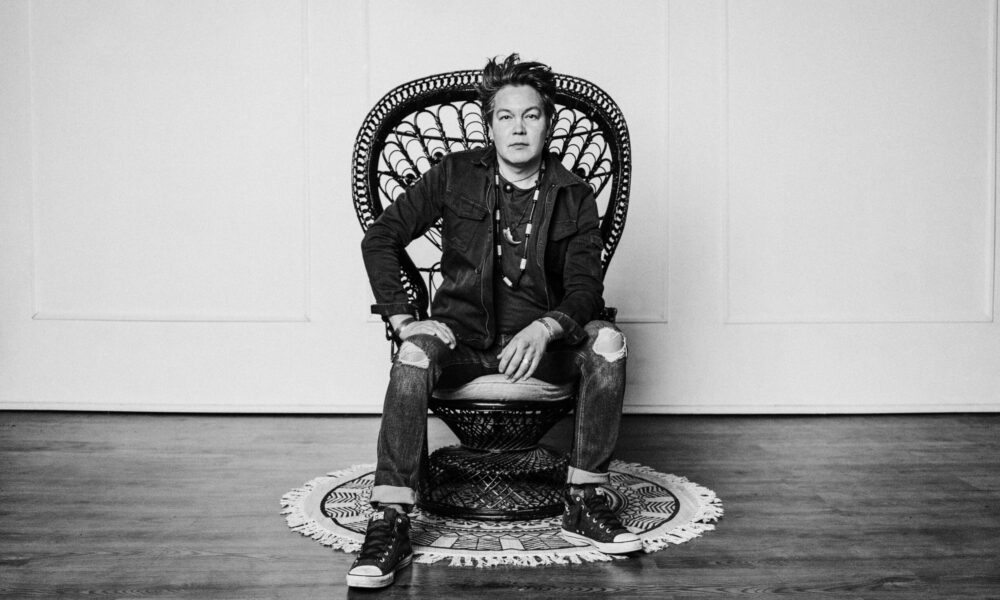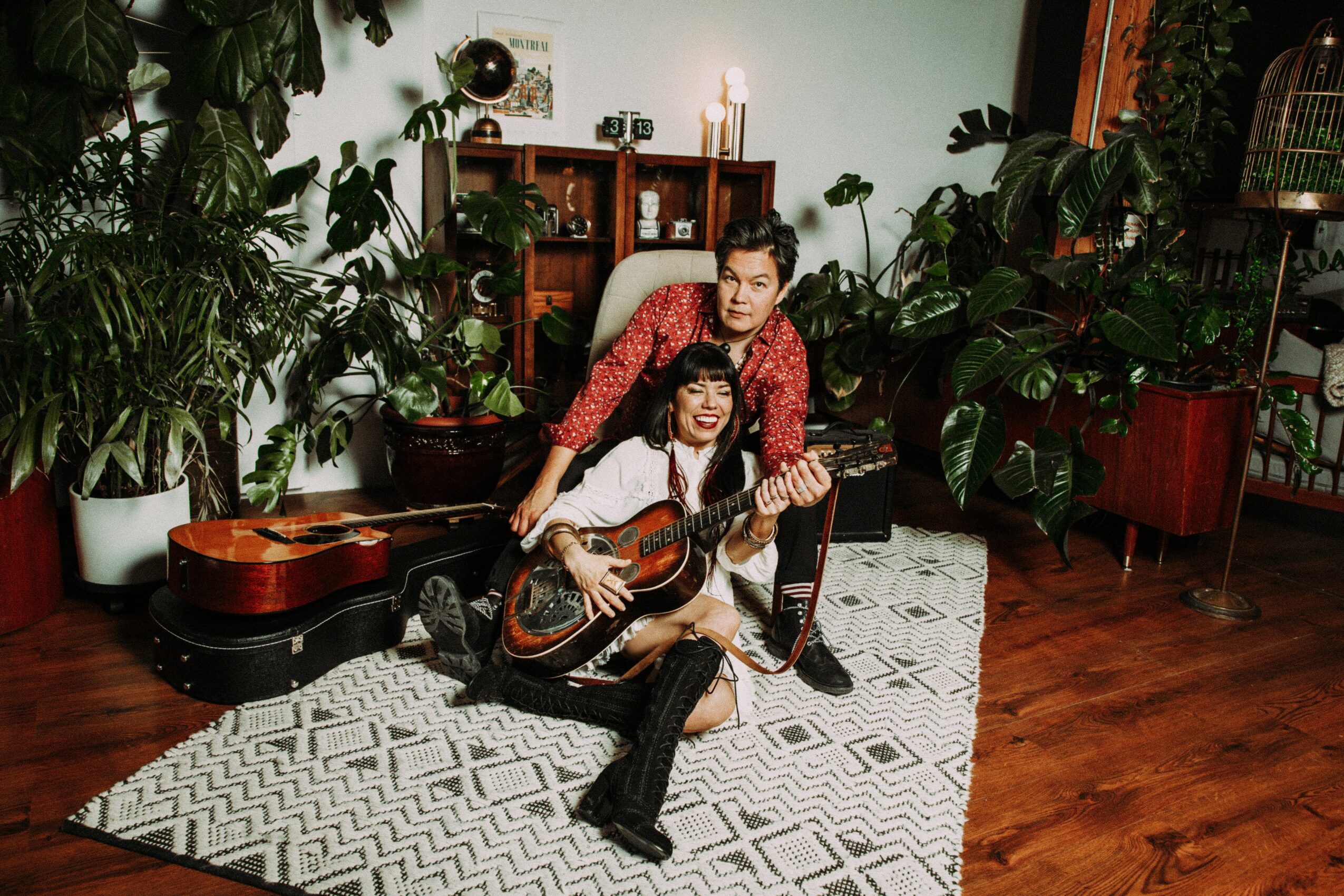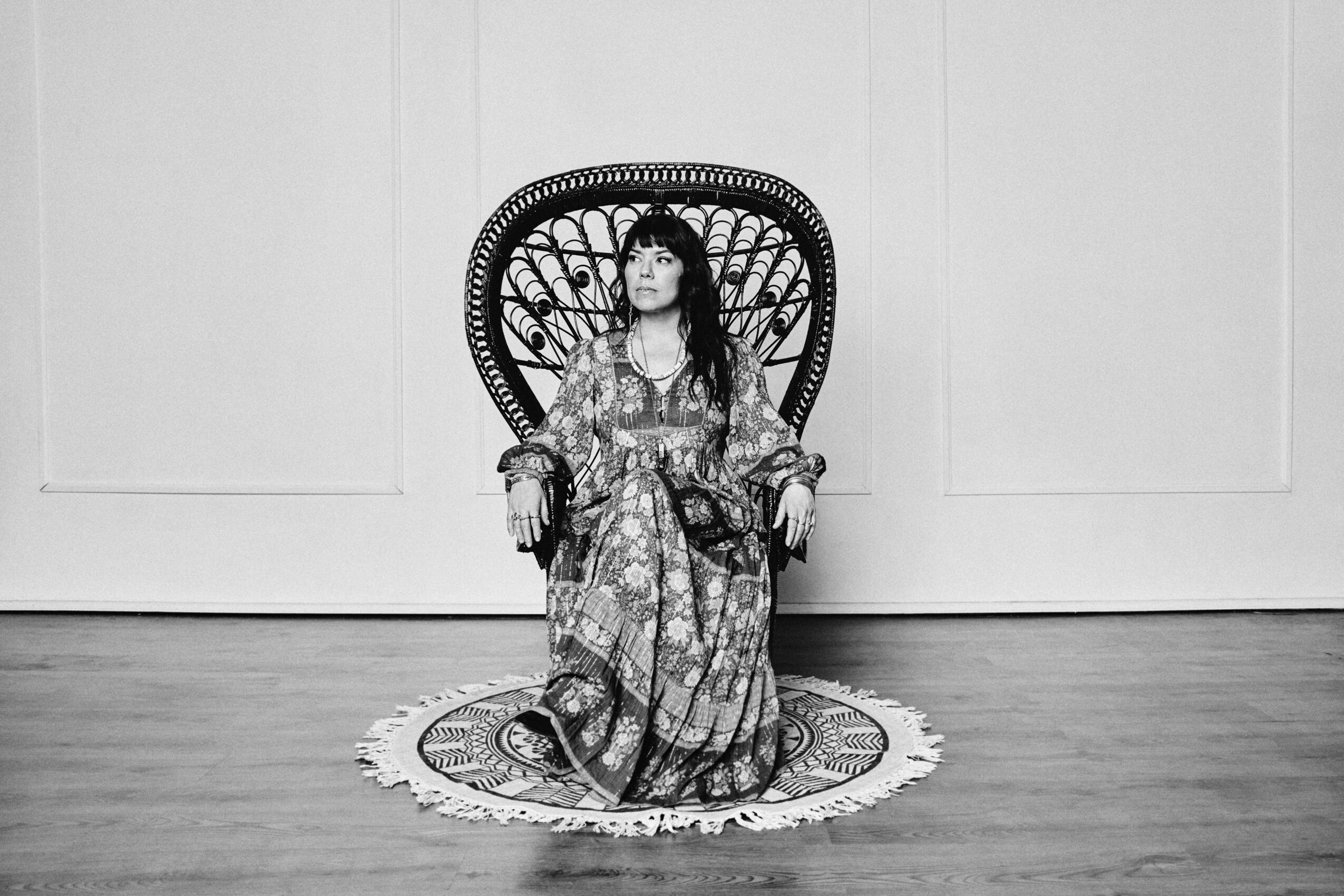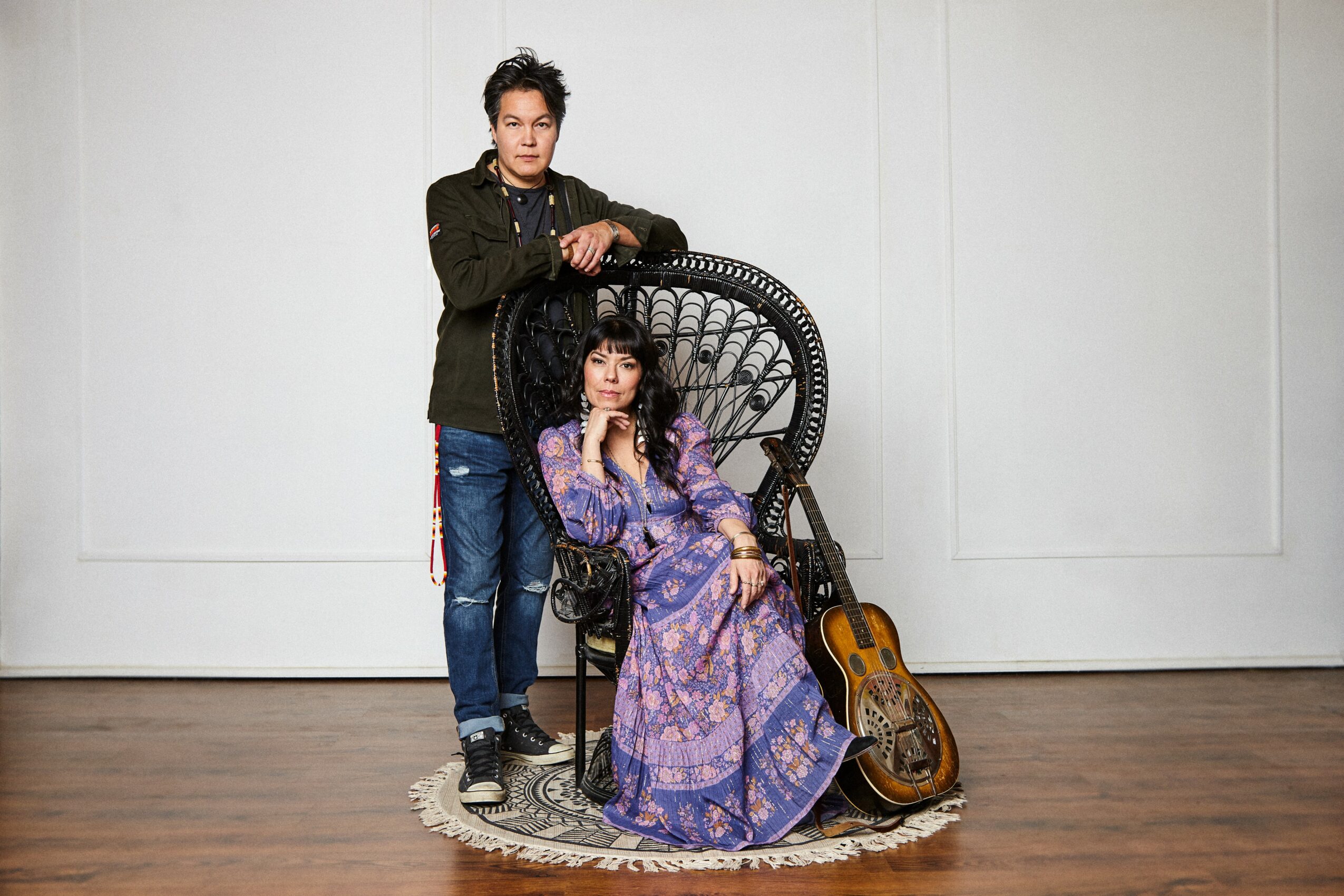

Today we’d like to introduce you to Raven Kanatakta.
Hi Raven, thanks for joining us today. We’d love for you to start by introducing yourself and how you got your start with music.
Kwe-kwe, shé:kon, Raven Kanatakta nidijinikazinan, nin Anishinabek acitc Onkwehón:we, make dodem acitc wakeniáhton.
When I was a kiddie, my musical Grandpa brought his acoustic guitar over to my house. Each time he’d visit, he’d intentionally place the guitar in a precarious or interesting place.
Once it was on top of the fridge, another time it was in the shower, in the closet… eventually, I began to pick up his old acoustic and strum it. Eventually, he taught me to play and sing ‘A Boy Named Sue’. After that experience, I was hooked!
In my late teens, I had hand and arm problems and couldn’t pick up a guitar for seven years. After seeing over thirty doctors and specialists I sought out a traditional Onkwehón: we and Anishinabek healer. He took me onto the land, to a northern Reserve where my wife ShoShona is from.
With a shovel, I dug several types of medicinal plants and at one point, I was waist-deep in a swamp pulling up roots. I was prescribed to clean the roots and make teas. After a week of drinking teas, I was able to play guitar again, and after a month I had regained the full use of my hands and arms.
It was then that my musical partner ShoShona and I started our band ‘Digging Roots’.
We all face challenges, but looking back would you describe it as a relatively smooth road?
Being an artist usually amounts to living on the fringe of society. It’s also an empowering place of self-discovery by learning how to embrace creativity in all its forms.
We raised our children on the road, behind stages, and on the festival circuit. We ate so many amazing meals and exotic foods, and as a result, both of our sons are chefs and musicians.
Spending so much time on the road was difficult at times but it also strengthened our family and I am extremely grateful for following our dreams and hearts.
Can you tell our readers more about what you do and what you think sets you apart from others?
Being an Anishinabek and Onkwehón: we person has been a great journey because our cultural identity has influenced how we create. While we are highly motivated by modern music we also integrate our traditional way of creativity into our music too.
We are practitioners of ‘Anishinabek Song Lines’; it’s an Anishinabek way of being inspired by the land. ShoShona and I write songs based on the contours of the land. For example, if you look at a mountain from east to west you could trace a melody. As the mountain climbs the melody would raise in pitch, perhaps it falls into a valley, then the melody would descend.
Cityscapes, tree lines, and shorelines, are all inspirations that can manifest into melody and rhythms. As Anishinabek we’ve been creatively doing this since time immemorial. ShoShona and I are carrying this tradition forward but we also integrate modern methods of songwriting and music-making.
At the end of the day, it’s about creativity and finding a place where music can lift the soul and spirit. We have a saying called ‘Mishkiki nigamowin’, which translates from Anishinabemowin to “music is medicine.” As an Indigenous person from Turtle Island, there is a lot of dark history.
Music helps deal with the long-term effects of oppression, genocide, and colonialism. Music may not absolve the unjust, but when people are dancing and interacting together peacefully there is a sense of hope and unity. Music is a ceremony, it’s a part of being alive and being human. We are all in this together.
The crisis has affected us all in different ways. How has it affected you and any important lessons or epiphanies you can share with us?
At the beginning of the pandemic, it took me many months to learn how to relax. ShoShona and I were in a constant state of movement from touring and living on the road.
Within a week of the pandemic, we lost tours in Scandinavia, Europe, the US, Canada, and Australia. So ShoShona started a company called Ishkōdé Records, it’s dedicated to bringing Indigenous music to the masses. I started doing soundtracks and film scoring. I got into the habit of obsessing over my studio space with tube compressors, tube, and ribbon microphones, and pretty much all things related to recording and producing.
Regarding the pandemic crisis, there has also been a concurrent crisis all across Canada with now over 10, 000 rediscovered Indigenous children in mostly unmarked graves from Canada’s assimilation process of implementing their Residential School System. While the number of deaths are tragically high this only reflects 10% of Residential Schools being surveyed. I’ve turned to music for healing and a place to express my emotions in a positive way. Struggling through both of theses crisis’ have actually made room for more creativity, writing songs, learning to play the drums, and singing more. The silver lining is ShoShona and I poured our souls into our latest album ‘Zhawenim’, which translates into ‘To Love Unconditionally’.
Contact Info:
- Website: www.DiggingRootsMusic.com
- Instagram: @diggingroots
- Facebook: www.facebook.com/DiggingRootsMusic
- Twitter: @_DiggingRoots
- Youtube: www.youtube.com/c/DiggingRootsMusic


 Image Credits
Image Credits
Jen Squires












